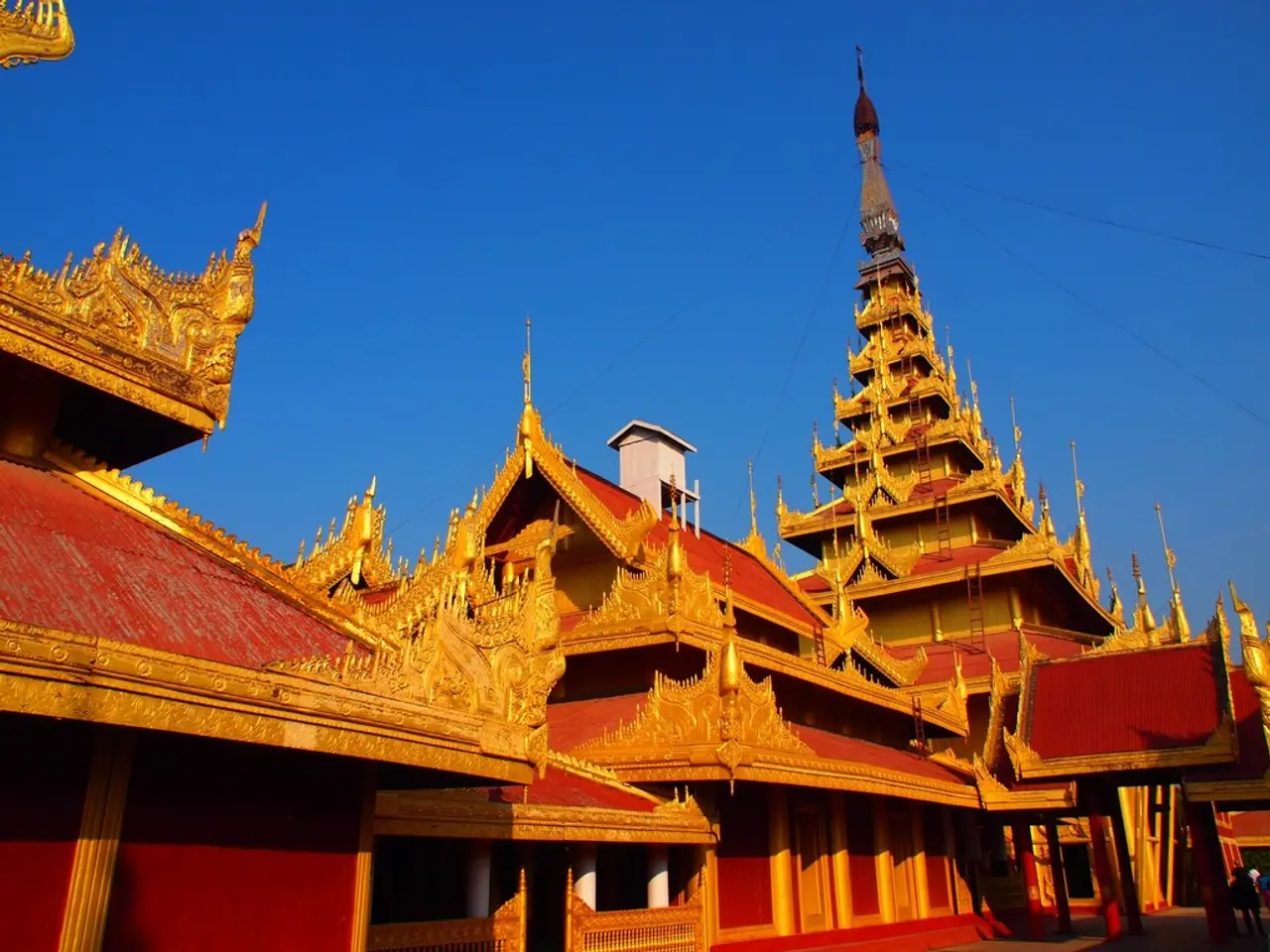Dissent towards political leaders
In the upcoming Thai elections, national security has become a prominent campaign issue due to ongoing border tensions with Cambodia. The skirmishes have transformed "national security" into a visceral concern for many Thais, affecting their daily lives and sense of state competence.
The border conflicts have disrupted the lives of people in the Thai-Cambodian border provinces, causing disruptions in schooling, farm work, and market access for small traders. Each evacuation resulted in lost wages, wasted perishable goods, and extra household expenses that many rural families could not afford without taking on debt.
The heaviest period of border fighting forced the evacuation of over 300,000 people from several provinces. The Thai-Cambodian frontier is a commercial artery, and each day of closure or restricted access translates into millions of baht in lost revenue.
A winning message in the election will frame border security as a precondition for economic growth. The national security debate is now a "pocketbook issue" as it directly affects household budgets.
The People's Party (PP) has emerged as a kingmaker, outlining conditions for supporting a new prime minister, including a House dissolution and a new cabinet holding a referendum on a new constitution. Pheu Thai, the current ruling party, has sought a House dissolution amid a debate over whether caretaker Prime Minister Phumtham Wechayachai could opt for a snap poll. A dissolution of parliament, should it occur sooner rather than later, would hurt Pheu Thai the most, potentially reducing the party to as few as 30 seats.
The PP's decision not to support Pheu Thai's prime ministerial candidate is seen as a calculated move ahead of the next general election. Bhumjaithai and PP have agreed to the PP's conditions, with Bhumjaithai likely to back its leader, Anutin Charnvirakul, as prime minister.
Bhumjaithai has boosted its standing with the public by taking a firm position on sensitive issues such as relations with Cambodia. Other political groups such as the Klatham Party and MPs led by Suchart Chomklin from the United Thai Nation Party (UTN) are leaning towards Bhumjaithai possibly due to conservative backing.
Security-conscious campaigning will resonate beyond the immediate border zone, potentially influencing urban voters who see national defence linked to Thailand's stability, international reputation, and economic prospects. The national security debate is not just a concern for those living near the border, but for all Thais who are worried about the country's future.
Mr Priyes, the Thai Sang Thai Party spokesman, stated that an earlier Nida Poll showed low public confidence in parties' ability to solve national problems. He suggested all political parties need to regain public trust to succeed in the next polls. Analysts agree that Bhumjaithai has become the preferred vehicle for conservative forces ahead of the next election, emasculating Pheu Thai through the haemorrhaging of MPs.
In light of the Thai-Cambodian clashes, security has moved firmly into the category of a "must address" campaign issue. Heavier border skirmishes have made national security a visceral concern for many Thais, affecting their daily lives and sense of state competence. The parties that emphasized security policy most notably included those advocating for strong national defense and internal order, which influenced voter preferences by appealing to concerns about stability amid regional tensions; this stance contributed to electoral gains for conservative and pro-military parties, while more reformist or opposition parties had comparatively less impact in this domain.
In conclusion, the upcoming Thai elections will be heavily influenced by the national security issue, with parties focusing on their stance on border security and internal order to win voter support. The public's disillusionment with broken promises by political parties, as stated by Mr Priyes, is now directed at the parties' ability to address national security concerns. The parties that can effectively address these concerns and regain public trust will likely have the best chance of success in the upcoming elections.
Read also:
- Lu Shiow-yen's Challenging Position as Chair of the Chinese Nationalist Party (KMT) Under Scrutiny in Donovan's Analysis
- Who is Palestine Action, the organization tied to numerous arrests within the UK?
- "Trump Criticizes EU's $3.5 billion fine on Google as Unjust, Threatens Additional Tariffs"
- Restructuring community adaptability amidst multiple concurrent crises








